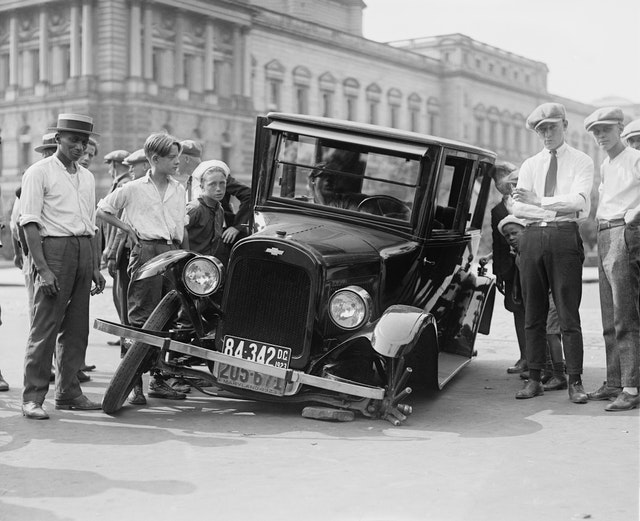Legalizing medical cannabis reduces road accidents. This is the news according to a recently published study by researchers in the United States. The observation comes from a broad corpus of road accident data spanning multiple states and years. Researchers offer up one possible explanation for the counterintuitive results: that people using medical cannabis consume less alcohol.
Study Finds That Legalizing Medical Cannabis Reduces Road Accidents


Now that medical cannabis is legal in many parts of the United States, researchers from Temple University and the University of Arkansas have measured the possible effects of legalization on road accidents. To do this, they analyzed car insurance data. And obviously, there is a positive effect.
This research is just the latest in a growing number of cannabis studies we cover here. Keep up with them all by downloading our free cannabis news app.
Cannabis and Road Accidents
It may sound counterintuitive, but legalizing cannabis could be good for road safety. In this new study, the researchers started from the observation that most data on cannabis and road safety comes from the study of fatal accidents. “In 2016, only 37,461 of the approximately 7,277,000 car crashes reported to police resulted in a death,” the team wrote in their study published in the journal Health Economics. “The existing literature misses 99.5% of car accidents.”
For this work, the researchers examined this relationship through car insurance premiums to get a clearer picture of traffic accidents and how they were affected by the legalization of cannabis. “Automobile insurers cover 67% of all medical and property damage resulting from automobile accidents,” it also reads. “Through this lens, we paint a more complete picture.“
Researchers Looked at Road Accident Data from 2014-2019
For this study, the team focused on the period 2014-2019. Analyzing this data, the researchers determined that the legalization of medical cannabis resulted in lower auto insurance premiums by an average of US$22 per policy per year. Additionally, the effect appeared to be greater in areas directly exposed to a dispensary,” suggesting that increased access to cannabis may be driving the results,” it reads.
A Possible Relationship With Alcohol?
Another interesting point: some of the sharpest post-legalization premium drops came from areas where drunk driving rates were relatively high before the legalization of medical cannabis. The researchers calculated that affected policyholders saved about $500 million in premiums. “Using a ratio of expenses attributable to premiums, the annual savings attributable to reduced medical expenses is approximately $220 million,” the team adds.
How Do We Explain the Road Accident Relationship with Legalized Cannabis?
To explain these counterintuitive results, the researchers suggest that people using medicinal cannabis drive less under the influence of alcohol. “Bar equivalents generally do not exist for cannabis, and current medical cannabis laws stipulate that consumption takes place in a private residence,” the study notes. “Thus, the co-use of cannabis and alcohol is likely to occur at home.”
It’s just a theory for now. Further work will be necessary to confirm or not all these results. Factors other than reduced alcohol consumption could also play a role.
—
(Featured image by Pixabay via Pexels)
DISCLAIMER: This article was written by a third-party contributor and does not reflect the opinion of Hemp.im, its management, staff, or its associates. Please review our disclaimer for more information.
This article may include forward-looking statements. These forward-looking statements generally are identified by the words “believe,” “project,” “estimate,” “become,” “plan,” “will,” and similar expressions. These forward-looking statements involve known and unknown risks as well as uncertainties, including those discussed in the following cautionary statements and elsewhere in this article and on this site. Although the Company may believe that its expectations are based on reasonable assumptions, the actual results that the Company may achieve may differ materially from any forward-looking statements, which reflect the opinions of the management of the Company only as of the date hereof. Additionally, please make sure to read these important disclosures.
First published by Le Temps, a third-party contributor translated and adapted the article from the original. In case of discrepancy, the original will prevail.
Although we made reasonable efforts to provide accurate translations, some parts may be incorrect. Hemp.im assumes no responsibility for errors, omissions, or ambiguities in the translations provided on this website. Any person or entity relying on translated content does so at their own risk. Hemp.im is not responsible for losses caused by such reliance on the accuracy or reliability of translated information. If you wish to report an error or inaccuracy in the translation, we encourage you to contact us.



Comments are closed for this post.